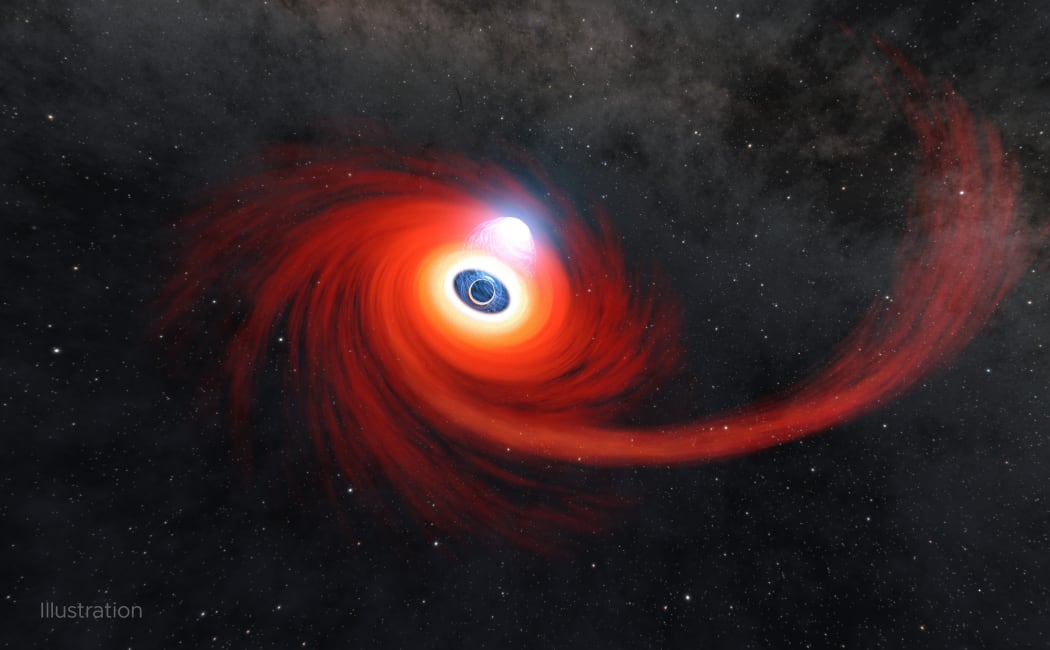Could We Witness a Black Hole Explode Within 10 Years?

Recently published physics research suggests there is nearly a 90% chance that we may detect an exploding black hole — specifically, a primordial black hole (PBH) — by the end of the next decade. While this event would be cosmically dramatic, scientists clarify it poses no threat to Earth. :contentReference[oaicite:0]{index=0}
What Kind of Black Hole Are We Talking About?
Unlike the familiar black holes formed from collapsing stars, these are **primordial black holes**, theorized to have arisen in the first moments after the Big Bang — roughly 13.8 billion years ago. They would be far smaller, lighter, and hotter (in the sense of Hawking radiation) than stellar or supermassive black holes. :contentReference[oaicite:1]{index=1}
Why Now? What’s New in the Research
- Dark-QED Model: The team introduces a hypothesis involving a “dark photon” and a heavy particle dubbed a “dark electron.” In this model, primordial black holes might carry a tiny **dark electric charge** that delays their complete evaporation before a final explosive end. :contentReference[oaicite:2]{index=2}
- Revised Timelines: Previous estimates placed the last burst of such black holes far, far into the future (e.g. hundreds of thousands of years). The new model suggests we might see such an explosion on average every 10 years. :contentReference[oaicite:3]{index=3}
- Detection Possibilities: Our current space-based and ground telescopes may already be capable of capturing the telltale signals — especially gamma-rays and high-energy particles from Hawking radiation. :contentReference[oaicite:4]{index=4}
Hawking Radiation & Final Black Hole Evaporation
The idea that black holes “evaporate” comes from Stephen Hawking’s famous theory. As a black hole loses mass through Hawking radiation, it heats up, radiating more intensely, until reaching a critical final stage. For primordial black holes, which are much lighter, that process could culminate in an explosive burst. :contentReference[oaicite:5]{index=5}
Implications: What an Explosion Would Mean
An observed PBH explosion would have profound significance for physics and cosmology:
- Confirmation of primordial black holes: These remain hypothetical. Seeing one explode would strongly support their existence. :contentReference[oaicite:6]{index=6}
- Evidence for Hawking radiation: Despite decades of theory, no direct observation exists — such an explosion would be the smoking gun. :contentReference[oaicite:7]{index=7}
- Possible new fundamental particles: The explosion should release a full spectrum of particles, possibly including ones beyond what current physics recognizes (such as dark matter candidates). :contentReference[oaicite:8]{index=8}
- Cosmological insights: Understanding how primordial density fluctuations, dark charge, and early-universe physics shaped our cosmos. :contentReference[oaicite:9]{index=9}
What We Should Keep in Mind
Not guaranteed: The probability is high, but this is still a “could” rather than a “will.” The models assume certain properties (like dark charge) that are speculative. :contentReference[oaicite:10]{index=10}
No danger to Earth: Even if an explosion occurs, it would be so far away and so rare that it would not pose any harm to our planet. :contentReference[oaicite:11]{index=11}
Why This Is Trending Now
Astrophysicists and particle physicists are excited because new theoretical models and improved observational tools are combining in a way that makes formerly unthinkable events potentially observable. With better telescopes, wider sky surveys, and more precise high-energy detectors, this topic is dominating talks in space science right now. Keywords like “primordial black hole explosion,” “dark photon,” “Hawking radiation detection,” and “black hole evaporation timeline” are trending across academic and popular science outlets. :contentReference[oaicite:12]{index=12}
Conclusion
In short: recent research reopens the possibility that black holes — specifically primordial ones — may not be forever silent. There is now a realistic chance that we will see the explosive death of one within the next decade. Such a discovery would be revolutionary for physics, offering direct proof of Hawking radiation, new particles, and deeper insight into the early universe. But until then, it remains a thrilling hypothesis rather than a certainty.
